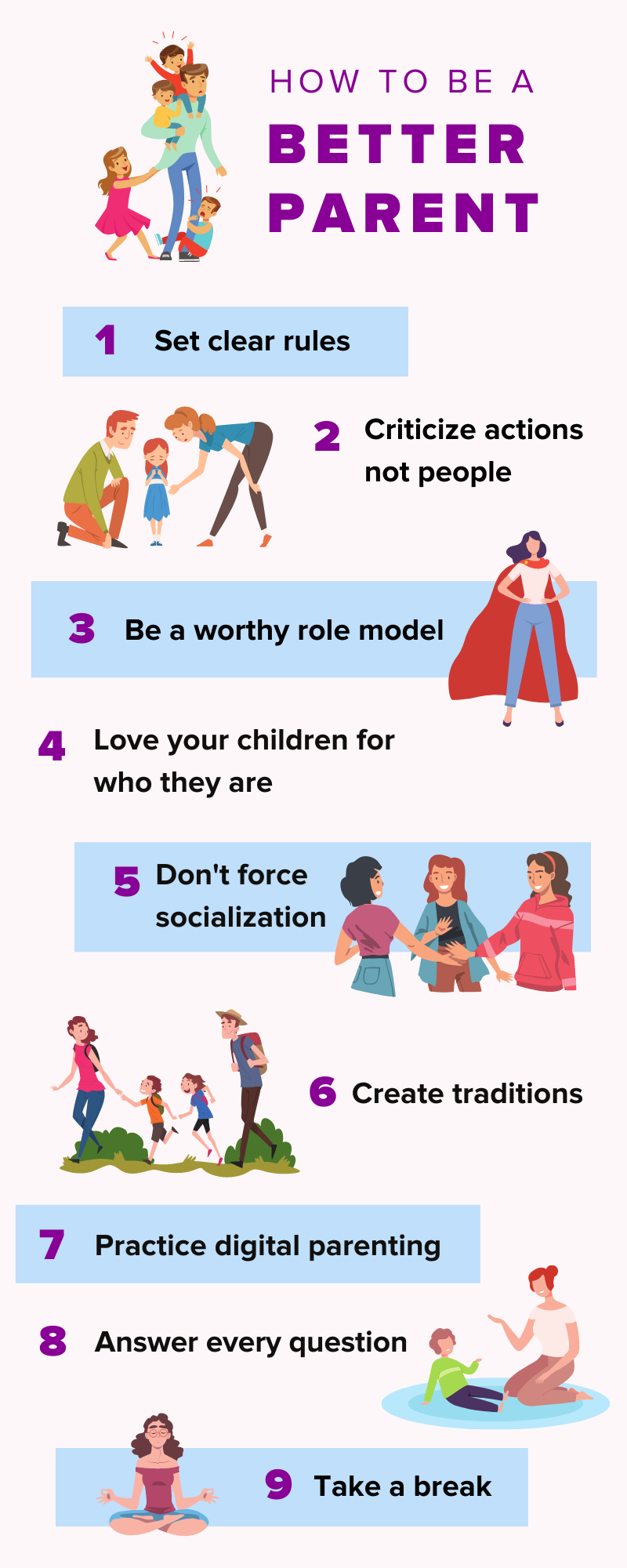Raising a happy and healthy family is a delicate balancing act that requires patience, understanding, and effective parenting skills. As a parent, you play a significant role in shaping your child’s future, and the quality of your relationship with them can have a lasting impact on their emotional and psychological well-being. In this article, we’ll explore the essential parenting skills that can help you build a strong, loving, and happy family.

1. Effective Communication
Effective communication is the foundation of a healthy parent-child relationship. It involves active listening, empathy, and open exchange of thoughts and feelings. When you communicate effectively with your child, you create a safe and supportive environment where they feel heard and understood.
To improve your communication skills:
- Practice active listening: Pay attention to your child’s words, tone, and body language.
- Use "I" statements: Express your feelings and thoughts without blaming or accusing your child.
- Avoid interruptions: Let your child finish speaking before you respond.
- Validate their emotions: Acknowledge and accept their feelings, even if you don’t agree with their perspective.
2. Setting Boundaries and Discipline
Setting boundaries and discipline are essential for teaching your child responsibility, self-control, and respect for authority. However, it’s crucial to strike a balance between authority and permissiveness.
To set effective boundaries and discipline:
- Establish clear rules and consequences: Be consistent and fair in your expectations and punishments.
- Use positive reinforcement: Reward good behavior and achievements with praise, hugs, or small treats.
- Avoid harsh punishments: Focus on teaching and guiding rather than punishing or shaming.
- Model good behavior: Demonstrate the behavior you expect from your child, such as respect, kindness, and responsibility.
3. Emotional Intelligence and Empathy
Emotional intelligence and empathy are critical skills for parents to develop, as they enable you to understand and manage your child’s emotions effectively.
To cultivate emotional intelligence and empathy:
- Recognize and validate your child’s emotions: Label and accept their feelings to help them develop emotional awareness.
- Practice emotional regulation: Manage your own emotions to respond calmly and thoughtfully to your child’s needs.
- Use emotional coaching: Teach your child to recognize, understand, and manage their emotions in a healthy way.
- Foster a sense of empathy: Encourage your child to consider others’ feelings and perspectives.
4. Encouraging Independence and Responsibility
Encouraging independence and responsibility is vital for helping your child develop self-confidence, self-reliance, and a strong work ethic.
To promote independence and responsibility:
- Gradually increase autonomy: Give your child age-appropriate tasks and responsibilities to help them develop self-sufficiency.
- Encourage decision-making: Allow your child to make choices and take calculated risks.
- Foster a sense of accountability: Hold your child responsible for their actions and mistakes.
- Offer guidance and support: Provide resources and guidance to help your child learn from their experiences.
5. Practicing Self-Care and Seeking Support
Parenting can be stressful and overwhelming, making self-care and support essential for maintaining your physical, emotional, and mental well-being.
To prioritize self-care and seek support:
- Schedule time for self-care: Engage in activities that bring you joy and relaxation, such as exercise, meditation, or hobbies.
- Build a support network: Surround yourself with family, friends, or support groups who can offer emotional support and practical help.
- Seek professional help: Consult with therapists, counselors, or parenting coaches when needed.
- Prioritize sleep and rest: Make time for rest and relaxation to recharge and refocus.
Frequently Asked Questions
Q: How can I balance discipline and empathy in my parenting approach?
A: Balance discipline and empathy by setting clear boundaries and consequences while still being understanding and compassionate. Use positive reinforcement and emotional coaching to encourage good behavior.
Q: How can I encourage independence in my child?
A: Encourage independence by gradually increasing autonomy, offering choices, and providing guidance and support. Foster a sense of accountability and let your child take calculated risks.
Q: How can I manage my stress and anxiety as a parent?
A: Manage stress and anxiety by prioritizing self-care, seeking support, and practicing relaxation techniques such as meditation or deep breathing. Delegate tasks and ask for help when needed.
Q: How can I improve my communication with my child?
A: Improve communication by practicing active listening, using "I" statements, and avoiding interruptions. Validate your child’s emotions and use open-ended questions to encourage conversation.
Conclusion
Parenting is a complex and challenging journey, but with the right skills and approach, you can build a strong, loving, and happy family. By cultivating effective communication, setting boundaries and discipline, developing emotional intelligence and empathy, encouraging independence and responsibility, and prioritizing self-care and seeking support, you can create a nurturing environment that fosters growth, development, and happiness.
Remember, parenting is a journey, not a destination. It takes time, effort, and patience to develop these skills and build a strong relationship with your child. Be gentle with yourself, and don’t be afraid to ask for help when needed. With time, love, and dedication, you can raise a happy and healthy family that thrives for generations to come.
Closure
Thus, we hope this article has provided valuable insights into The Art of Parenting: Skills for a Happy Family. We hope you find this article informative and beneficial. See you in our next article!